Recommendations on “People-Centered Justice Solutions” - New concept advocated by the new iCPCJ curriculum.
The confidence of the public in the criminal justice system; the accessibility to the criminal justice system for groups with specific needs; the application of alternative justice system; and the creation of social reintegration opportunities for those who had made bad life decisions are the 4 main outstanding challenges in the Thai criminal justice system.
With the recognition of these problems, the 4 topics have been the issue of deliberation in the “iCPCJ” curriculum or “Executive Programme on the Implementation of International Standards and Norms in Crime Prevention and Criminal Justice”. In this course, Thailand Institute of Justice (TIJ) had invited personnel from multiple disciplines, i.e., agency executives in the justice system, international organizations advocating for improved justice system and leaders of civil organizations. Through the novel thought process, the participants can learn and together formulate recommendations and practices, pursuant to which “International Standards” can be applied and contextualized to the Thai criminal justice system. Based on the 4 aforementioned issues, the output of the course had been presented on the 3rd of August 2022 under the core concept of “Building a People-Centered Justice Solutions”.
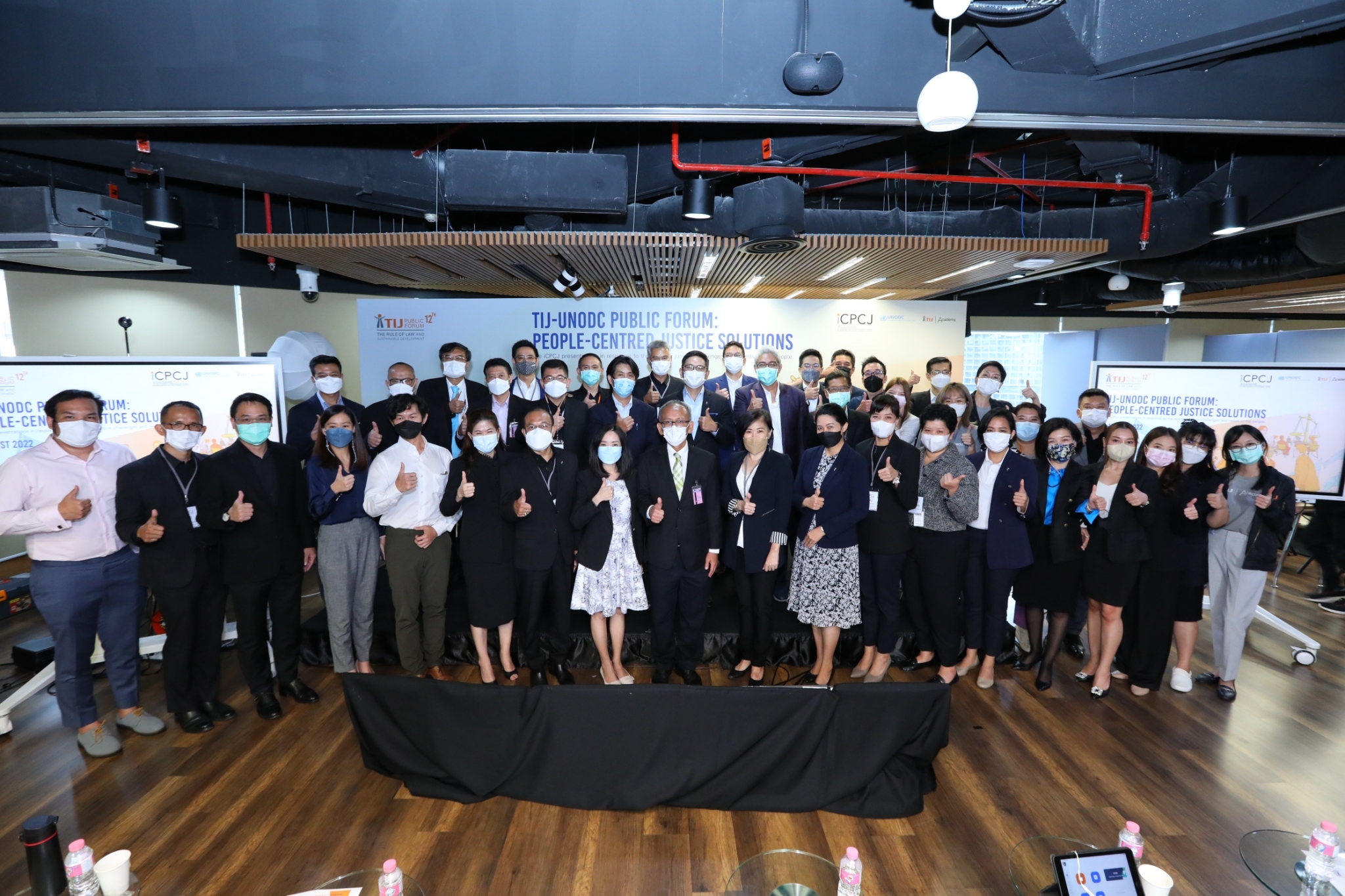
The 4 issues had led to the following findings:
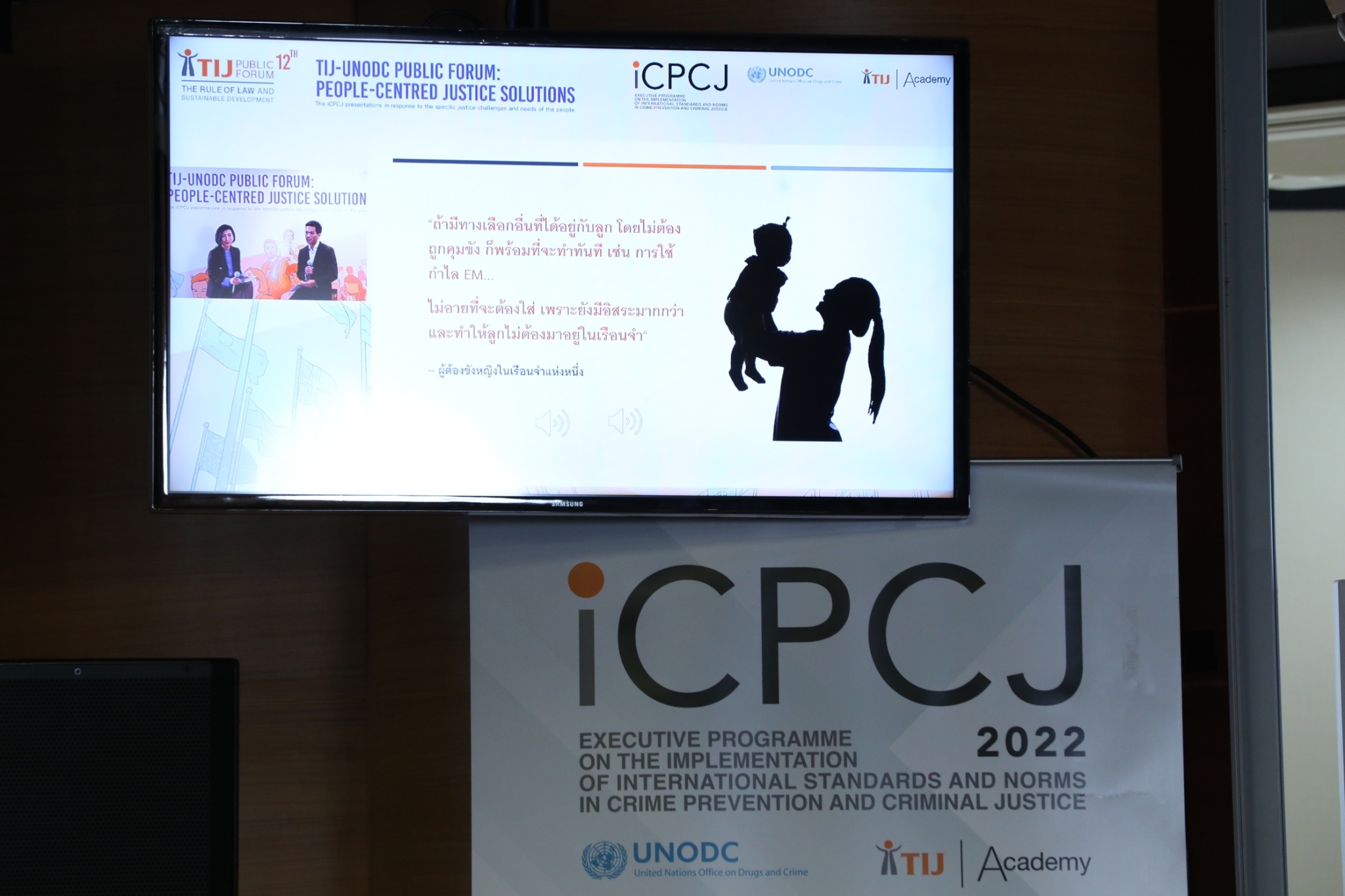
Issue - Accessibility to criminal justice system for groups with specific needs was presented under the theme “Dust-Colored Cloth – Children following Adults into Custody”. The presentation told the story of innocent children who are the “dependents of inmates” and are serving time with their adult guardians in prison. These children include unborn children of pregnant inmates and infants. It was found that this issue has never been efficiently solved using the justice process. Practices of many countries were referred to and compared in order to formulate policy recommendations both for the development of international standards and formulation of standards applicable to the context of Thailand. These recommendations were based on the “best interest of the children”, focusing on applying “non-custodial measures” with pregnant offenders or offenders with child dependents, provided that they are charged with non-violent crimes. This approach enables the offenders to look after their children without having to bring them along into custody.
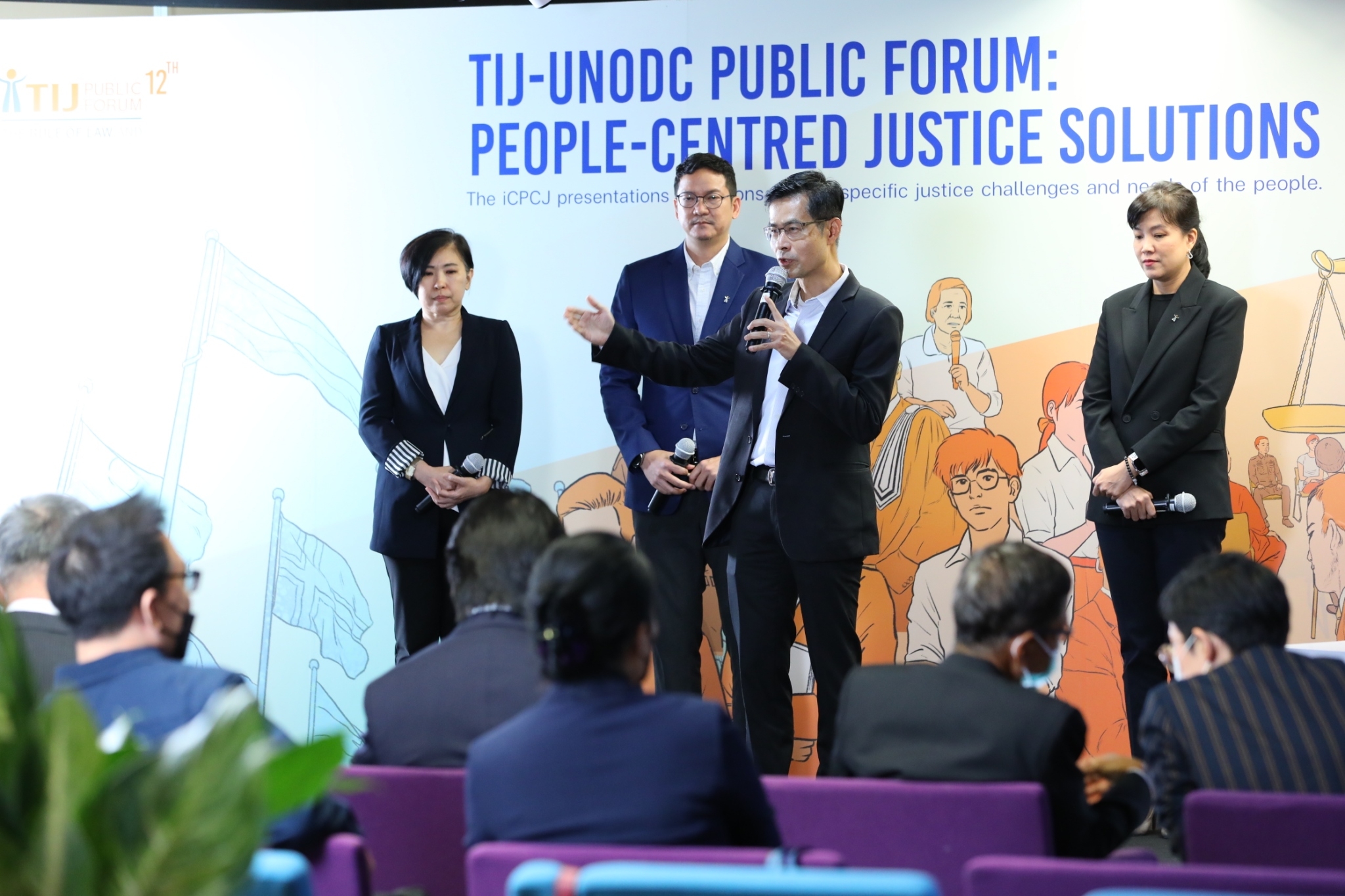
Issue - Creation of social reintegration opportunities for those who had made bad life decisions. This is a new tool to assess the pre-release preparedness of youth offenders and was presented under the theme “Supporting the effective reintegration of young offenders with assessment tool under the Good Lives Model”. This tool is a “5-dimensional need assessment for youth” covering the dimensions of family, education and occupation, residences and community care system, leisure and association with friends, and health care management and solutions. This tool has been newly designed to collect data for the pre-release preparation of each young person for efficient reintegration and has been piloted by social workers.
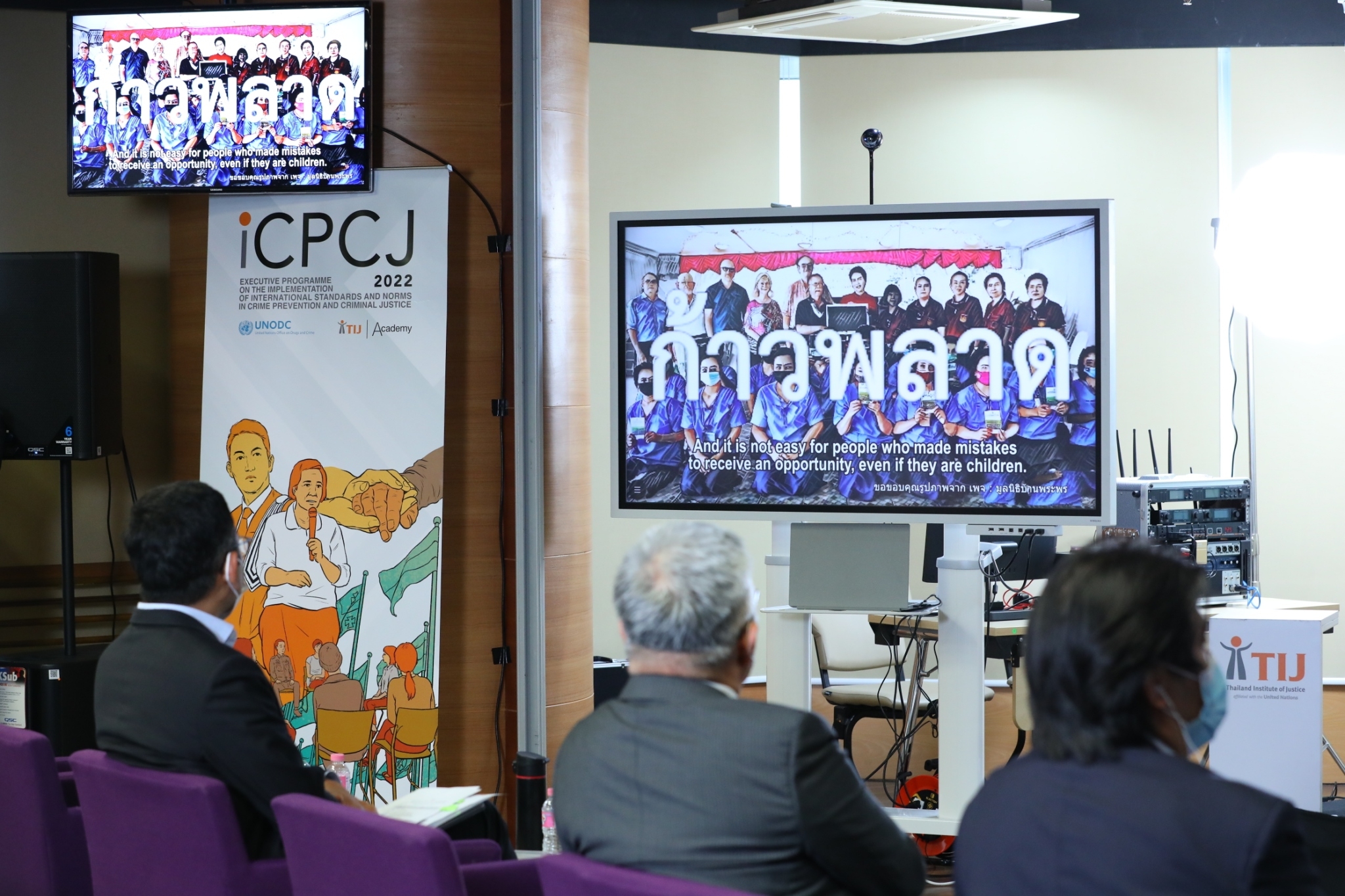
Issue – Application of alternative justice system was viewed through the lenses of providing rehabilitation for mistaken youths. It was found that youth offenders who had been detained have higher rate of recidivism. Hence, the establishment of “Private Training Center” was proposed whereby fences and detention can be replaced by understanding the root cause and enhancing the capacity of these young persons. Under the theme “House of Blessing Foundation – Collaboration for Alternative Justice”, the House of Blessing Foundation was used as a sandbox for the private training center model. It will coordinate with the Department of Juvenile Observation and Protection to instigate behavioral changes, improvement, and remedy for mistaken youths for their reintegration. Pertaining to this recommendation, there have been government mechanisms that allow private or civil society organizations to participate as private training centers, however, this model has not been put to practice.
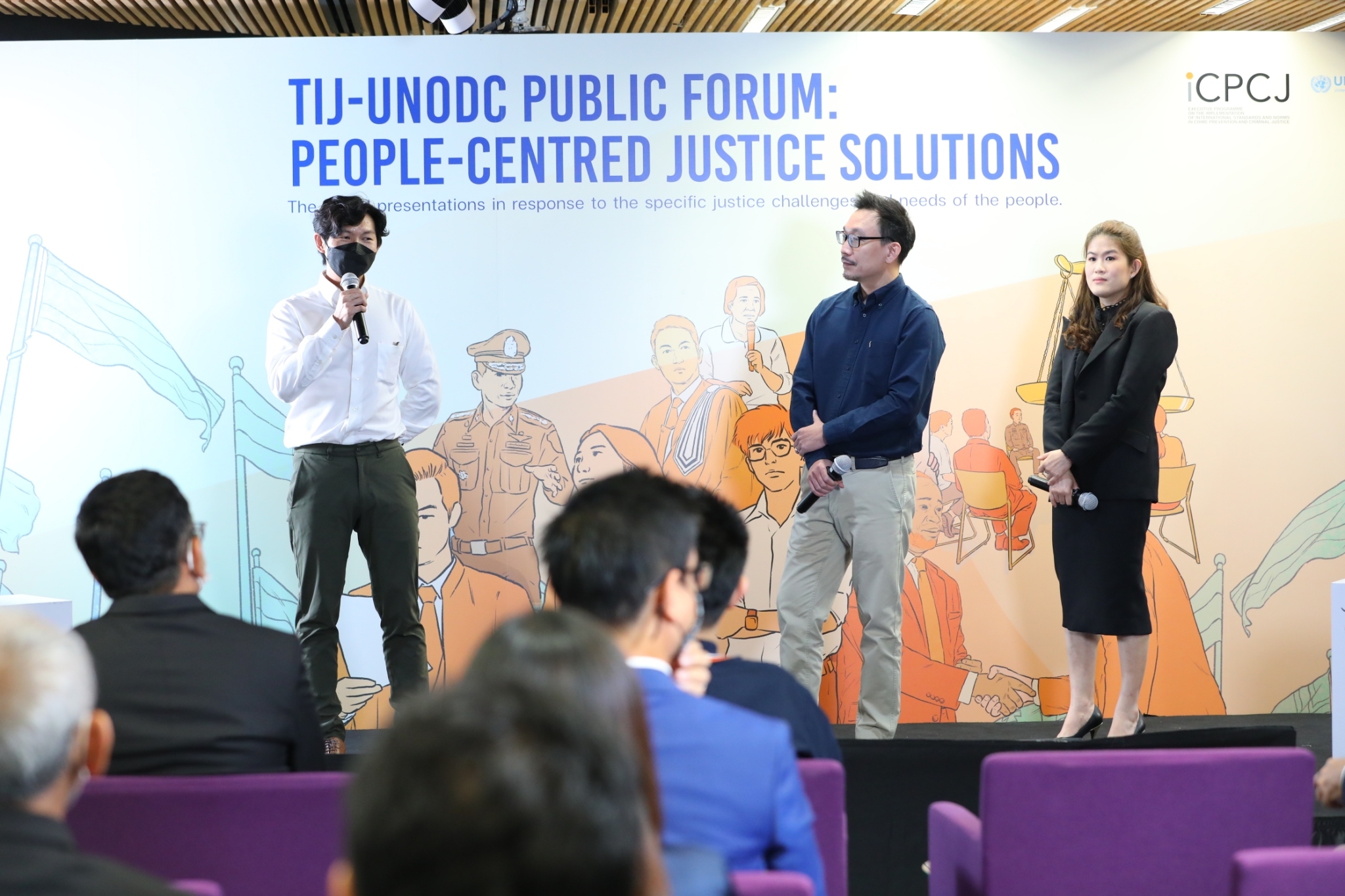
Issue – Technology and justice system were considered with the focus on “online scam”. Online scams has been a chronic problem leading to the public questioning the efficiency of government authorities, particularly the justice processes, in handling online scammers and protecting the people from financial loss. The recommendation was presented under the theme “Winning the People’s Battle against Phone Scams in Thailand”. It includes response measures against the scammers using technological means to facilitate quick identification of financial route, at the speed equivalent to the scammers’, in order to locate and return the money to the victims. Amendment of certain legislations was also recommended, particularly to criminalize the sale and purchase of bank accounts. Also, an educational programme for scammer’s target group should be established by producing offline educational material to provide higher accessibility than online material.
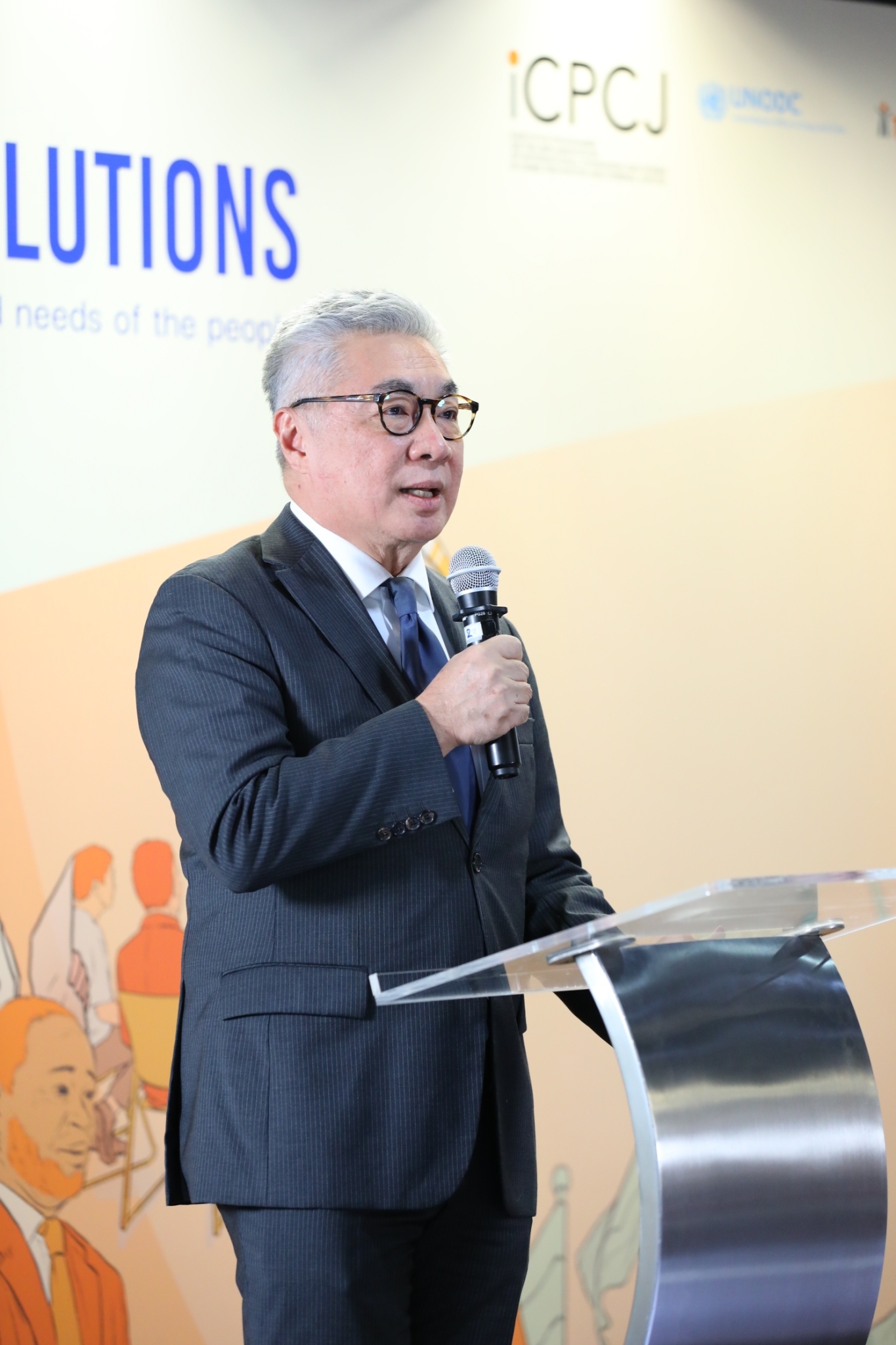
Prof. Dr. Kittipong Kittiyarak, Consultant of TIJ and the iCPCJ course, revealed that this public forum is the first output presentation of the participants. We can see that the traditional justice system was designed based on the state-centered approach. But the presentations of the participants of iCPCJ are originated from the mindset, thought process, and views that are people-centered, enabling everyone to truly access the justice process, particularly for women, girls and even defendants. This is a vital compass that sets direction for our further collaboration.
The determination of each issue for deliberation in this course also shines the light on the existing problems in the justice process, i.e., the challenges, the lack of confidence and innovation, etc. The course is conducted as a group learning, with the application of new approaches and concepts of design thinking, system thinking, and future thinking, equipping the executives in the justice systems with practical tools they can actually apply.
“We need to understand the entire justice process and all of its components. We need to see the entire forest, not only each tree on its own. It is important for all players to recognize what the forest is made of and why is it important, in order for us to understand the role of each tree. What do we have to do to achieve the goal of having an abundant forest? If we have an international standard, it can be used to as guidance to reflect clearer direction in this endeavor.”, said Prof. Dr. Kittipong.
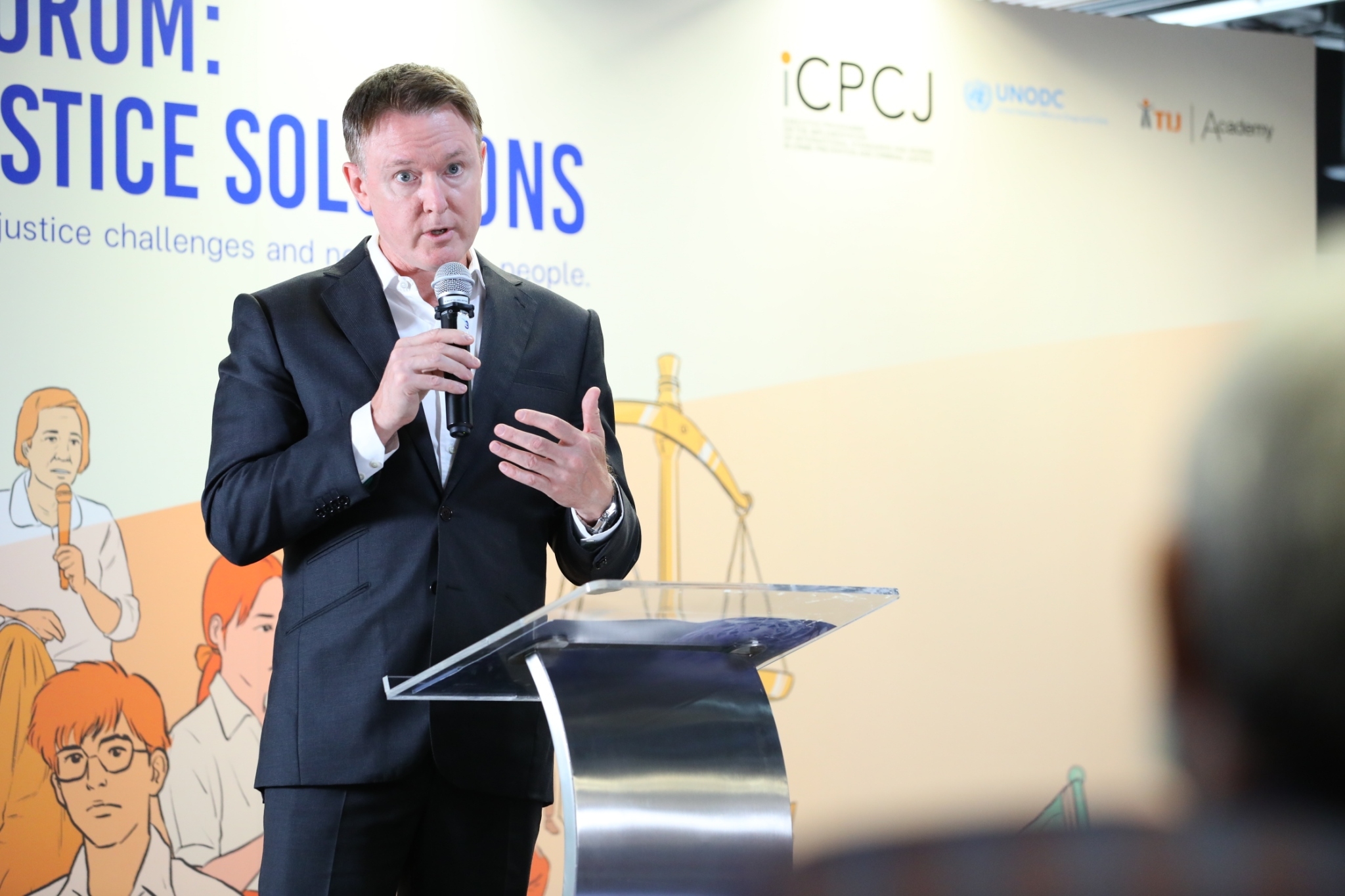
Jeremy Douglas, Regional Representative of the United Nations Office on Drugs and Crime – UNODC, as the co-host organization of iCPCJ course, provided that the presented output will play a vital role in linking international norms which will further the improvement of justice system. Also, legal and judicial professionalism can be leveraged for this purpose. It is indeed a challenge to implement variety of standards in a manner that fits the local context.
“iCPCJ course deserves a compliment for upholding the international standards and supporting peaceful and equitable society. Our programme and collaboration with our partners in this region greatly contribute to the achievement of the United Nations Sustainable Development Goals. You can see that iCPCJ offers a different approach on the justice system whereby design thinking, system thinking, and future thinking mechanisms are applied with the goal of improving the justice process in this region.”
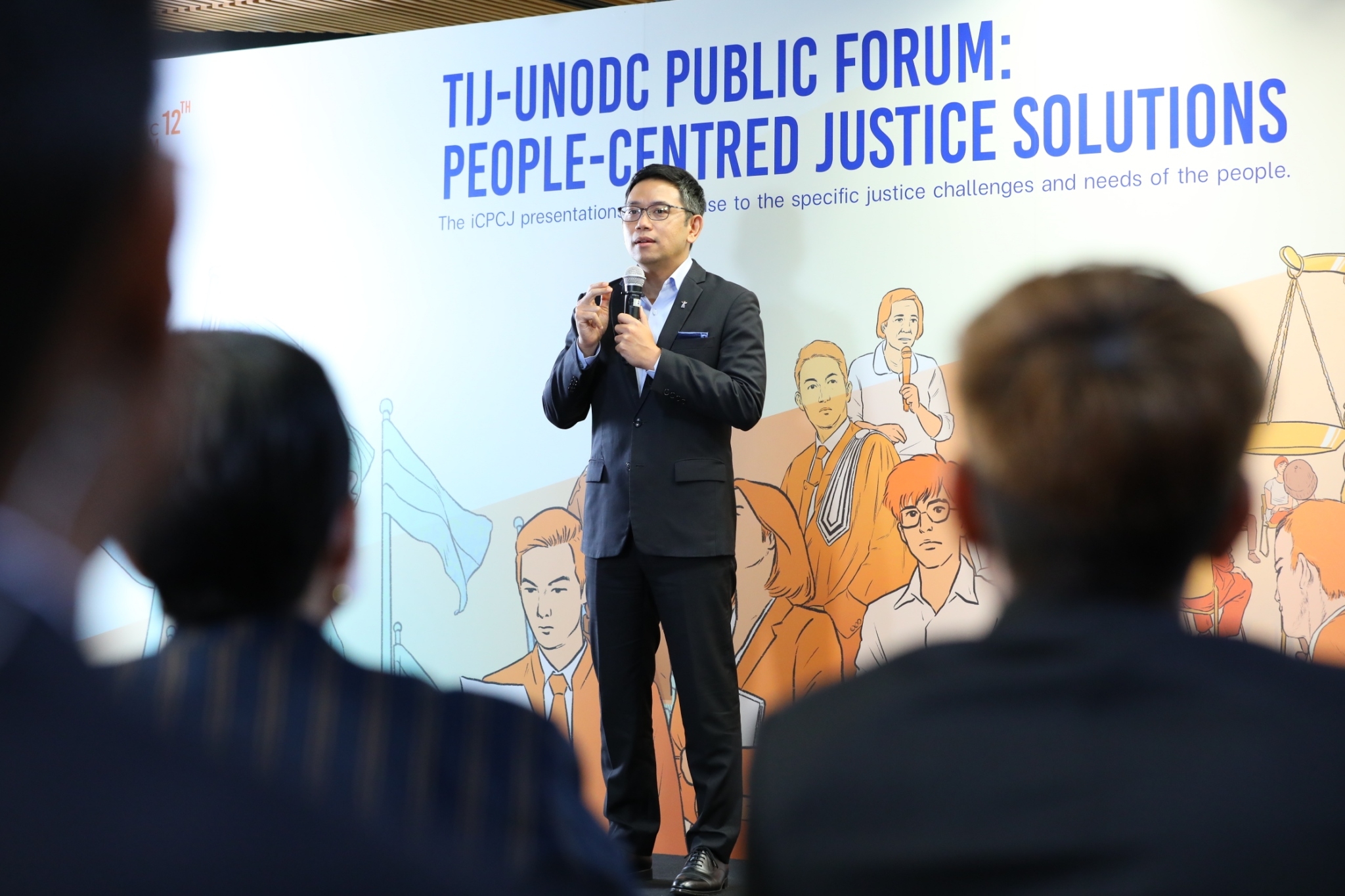
Dr. Phiset Sa-ardyen, the Executive Director of TIJ, provided in his closing that this public forum is an important stage where the recommendations obtained from the hard work of iCPCJ participants are presented. The recommendations are interesting. They offer in-depth and multi-dimensional view of the problems.
“As the designer of the course and training activities, the output presented under the 4 issues had exceeded my expectations and is the outstanding value of the course. I would like to express my gratitude to all of the recommendations and for providing the space where stakeholders can together recognize the challenges in our justice process and equity issues.”, said Dr. Phiset.
The important keywords obtained from the 4 presentations are: Leaving no one behind. Since most of the recommendations are focusing on those who are neglected in society, i.e., youths who had made poor decisions and children of female prisoners. It is uplifting to see that seeking new possible solutions to the existing challenges in the justice process is the core of this course. The participation and perspectives shared by multi-sectoral players also reveal the possibilities and opportunities to leverage the capacity of this partnership. With enabling environment and confidence, the recommendations presented can be implemented to its full potential.
The Executive Director of TIJ also provided that, we need to remember that the Thai society still views the traditional methods of punishment as the main penalty. But we also found that there are options to punishment such as the application of alternative punishment. This is a major structural issue that we have to thread carefully. Even though the practitioners in the justice process may want to affect the change but the exercise of state authority can be a barrier to such change. This includes matters that the public may consensually view as wrong, but the legislative framework does not allow the state to exercise its authority. Hence, the trial and testing process of the tools can assist the officers in overcoming these obstacles.



